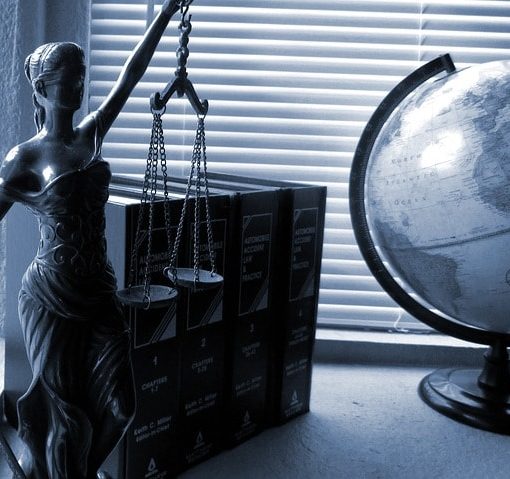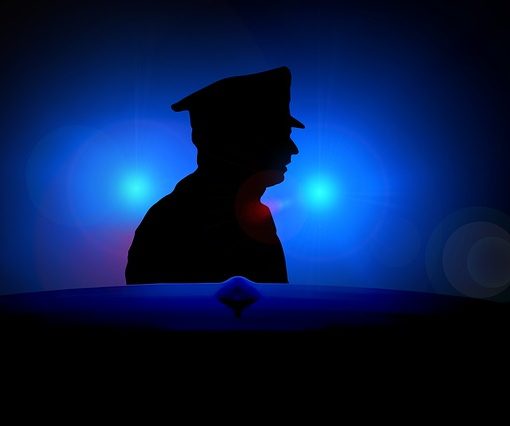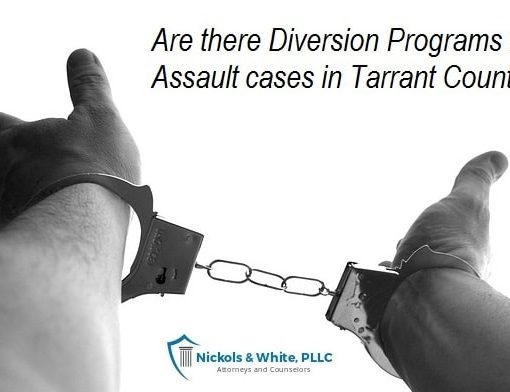
First off, dont panic. The lawyers at Nickols & White, PLLC, have extensive experience representing people from all walks of life in Texas that have a professional license and were arrested or convicted of a crime. The important thing to remember is that an arrest or a conviction does not mean your license will be take away! However, it is a serious issue that should be handled by one of our professional license defense lawyers.
What is the TDLR and which professional licenses do they issue?
The Texas Department of Licensing and Regulation, TDLR for short, is the governing body that issues, administers and renews most professional licenses in the State of Texas. The following is a list of the licenses that the TDLR issues:
Air Conditioning and Refrigeration Contractors
Architectural Barriers: Registered Accessibility Specialists
Athletic Trainers
Auctioneers
Barbers
Boiler Inspectors
Combative Sports
Cosmetologists
Dietitians
Driver Education and Safety
Dyslexia Therapists and Practitioners
Electricians
Elevator Inspectors
Hearing Instrument Fitters and Dispensers
Industrialized Housing and Buildings
Licensed Breeders
Midwives
Orthotists and Prosthetists
Polygraph Examiners and Trainees
Prepaid Legal Services
Professional Employer Organizations
Property Tax Consultants
Property Tax Professionals
Service Contract Providers
Speech-Language Pathologists and Audiologists
Temporary Common Worker Employer
Tow Truck Operators and Permit Holders
Used Automotive Parts Recyclers and Employees
Vehicle Storage Facility Owners and Employees
Water Well Drillers
Water Well Pump Installers
Weather Modification
What factors does the TDLR use to determine if a crime can keep me from a professional license?
The important factors to think about, in lay terms, are that if you are convicted of a crime that directly relates to the occupation you are trying to get licensed for, then your chances of getting licensed or renewed go down dramatically. So, let’s say you are trying to get your Electrician license and you are convicted of theft of copper wiring, then you can almost count on being denied. Also, any convictions within the past 5 years will count against you. Additionally, if you are convicted of a 3g crime, basically very serious crimes, like Murder or anything that is aggravated, meaning you used a weapon, that will count heavily against you.
Now, a plea of guilty does not necessarily mean a conviction. If you plead guilty and are placed on Deferred Adjudication and successfully complete your Deferred and the charge is dismissed, this is not counted as a conviction by the TDLR. Therefore, it is very important that you call our lawyers before you make any decision regarding your criminal case.
Here is the complete list of all the factors that TDLR will consider--
AUTHORITY TO REVOKE, SUSPEND, OR DENY LICENSE. (a) A licensing authority may suspend or revoke a license, disqualify a person from receiving a license, or deny to a person the opportunity to take a licensing examination on the grounds that the person has been convicted of:
(1) an offense that directly relates to the duties and responsibilities of the licensed occupation;
(2) an offense that does not directly relate to the duties and responsibilities of the licensed occupation and that was committed less than five years before the date the person applies for the license;
(3) an offense listed in Section 3g, Article 42.12, Code of Criminal Procedure; or
(4) a sexually violent offense, as defined by Article 62.001, Code of Criminal Procedure.
(a-1) Subsection (a) does not apply to a person who has been convicted only of an offense punishable as a Class C misdemeanor unless:
(1) the person is an applicant for or the holder of a license that authorizes the person to possess a firearm; and
(2) the offense for which the person was convicted is a misdemeanor crime of domestic violence as that term is defined by 18 U.S.C. Section 921.
(b) A license holder's license shall be revoked on the license holder's imprisonment following a felony conviction, felony community supervision revocation, revocation of parole, or revocation of mandatory supervision.
(c) Except as provided by Subsections (d) and (e), notwithstanding any other law, a licensing authority may not consider a person to have been convicted of an offense for purposes of this section if, regardless of the statutory authorization:
(1) the person entered a plea of guilty or nolo contendere;
(2) the judge deferred further proceedings without entering an adjudication of guilt and placed the person under the supervision of the court or an officer under the supervision of the court; and
(3) at the end of the period of supervision, the judge dismissed the proceedings and discharged the person.
(d) A licensing authority may consider a person to have been convicted of an offense for purposes of this section regardless of whether the proceedings were dismissed and the person was discharged as described by Subsection (c) if:
(1) the person was charged with:
(A) any offense described by Article 62.001(5), Code of Criminal Procedure; or
(B) an offense other than an offense described by Paragraph (A) if:
(i) the person has not completed the period of supervision or the person completed the period of supervision less than five years before the date the person applied for the license; or
(ii) a conviction for the offense would make the person ineligible for the license by operation of law; and
(2) after consideration of the factors described by Sections 53.022 and 53.023(a), the licensing authority determines that:
(A) the person may pose a continued threat to public safety; or
(B) employment of the person in the licensed occupation would create a situation in which the person has an opportunity to repeat the prohibited conduct.
(e) Subsection (c) does not apply if the person is an applicant for or the holder of a license that authorizes the person to provide:
(1) law enforcement or public health, education, or safety services; or
(2) financial services in an industry regulated by a person listed in Section 411.081(i)(19), Government Code.
What is the process with TDLR if I am arrested or convicted?
- TDLR's Licensing Division runs a criminal background check through the Department of Public Safety (DPS) on each original license application and each renewal application filed. If the application or the DPS check reveals a conviction that could be a basis for denying the license, the Licensing staff will refer the matter to TDLR's Enforcement Division for further review.
- The matter is then immediately assigned to an attorney for review. The attorney treats these referrals as high priority and reviews the criminal conviction.
- If the attorney determines that the license should not be denied on the basis of the criminal conviction then the attorney immediately returns the application with a memorandum stating their conclusion.
- If the attorney determines that the license should be denied due to the criminal conviction, the attorney secures certified copies of the relevant criminal convictions and any other information deemed necessary. A letter of proposed license denial is then mailed to the applicant. The letter clearly identifies the convictions that form the basis of the proposed denial, cites the statutory authority for the proposed denial, and advises the applicant that a hearing may be requested to challenge the proposed denial.
- If an applicant requests a hearing on the proposed license denial, the request is immediately forwarded to the prosecuting attorney. The attorney schedules a hearing on the nearest available date and issues a Notice of Hearing to the applicant. After a hearing is conducted, the Administrative Law Judge issues a Proposal for Decision for consideration by the Commission of Licensing and Regulation. After considering the Proposal for Decision, the Commission may grant or deny the license.
For individuals who are already licensed when the agency discovers a criminal conviction, the process is essentially the same as that described above.
Do I need a lawyer for my professional license?
Absolutely, yes. It is important to understand that while the rules may seem rigid, a good lawyer can help you explain the conviction and the circumstances surrounding it. The lawyer can explain to the attorney and possibly the Administrative Law Judge that despite the fact you have a criminal conviction, why this conviction will not interfere or affect your ability to perform the job you are seeking the license for. Additionally, if the matter is referred to a hearing before the Administrative Law Judge, the judge will hold you to the same legal standard as the prosecuting attorney. That means you will need to know the law, know the Rules of Evidence and the legal objections to make at your hearing. These things take years of study and practice to master and should be left up to lawyers.
If you find yourself seeking a professional license or professional license renewal in Texas and have been arrested for a crime anywhere, you must call the Professional License Defense Lawyers at Nickols & White, PLLC in Fort Worth, Texas. We represent clients all over the State of Texas with professional licensing and hearings before the Administrative Law Judge. Call us for a private consultation at (817) 617-7500 today.




